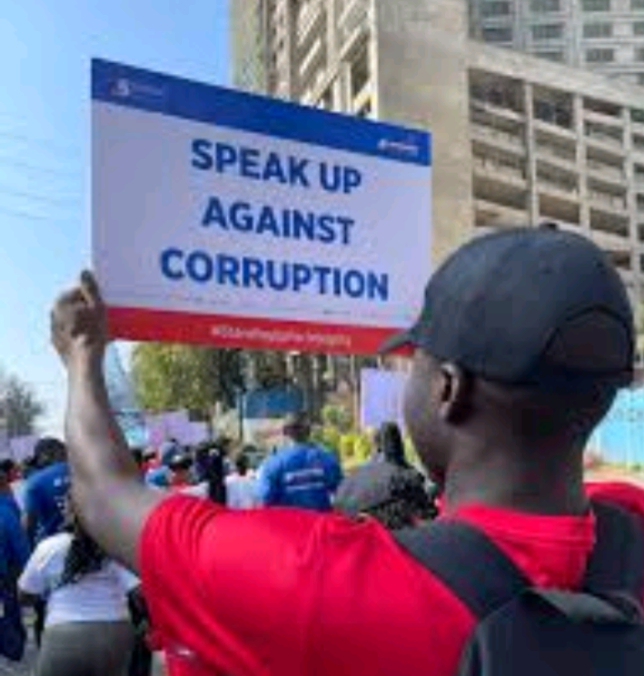

Kenya has been ranked position 121 out of 180 countries globally in the 2024 Corruption Perception Index (CPI) released by Transparency International (TI-K).
With a score of 32 out of 100 this shows a marginal improvement from 31 points in the 2023 report.
The score is, however, below both the Sub-Saharan African average of 33 points and the global average of 43 points.
A score below 50 indicates serious levels of corruption in the public sector.
Kenya's performance, according to the organisation, remains largely stagnant, reflecting persistent corruption challenges.
This in spite of the increased public awareness and civic engagement, it said in a statement released February 11.
In East Africa, Rwanda leads the region with 57 points, improving from 53 points in 2023.
Tanzania also showed progress, scoring 41, up from 40 in 2023 while Uganda remained at 26 points.
Burundi's score decreased to 17 points from 20 in 2023. Other Sub-Saharan African countries above the global average include Seychelles (72 points), Cabo Verde (62 points), Botswana (57 points), Mauritius (51 points), Namibia (49 points), and São Tomé and Príncipe (45 points).
The CPI uses a scale of 0-100 (where 100 is the cleanest and 0 is the most corrupt).
Countries and territories are ranked based on their perceived levels of public sector corruption.
The report is a composite index, a combination of surveys and assessments of corruption, which is collected by a variety of reputable institutions.
The 2024 edition of the CPI ranked 180 countries and territories by their perceived levels of public sector corruption, drawing on 13 different data sources from 12 different institutions that capture perceptions within the past two years.
Denmark, Finland, and Singapore topped the index, with 90, 88, and 84 points, respectively, while South Sudan, Somalia, and Venezuela, fell at the bottom with scores of 8, 9 and 10, respectively.
"More than two-thirds of countries scored below 50 out of 100," it states.
The report indicates that corruption is still rampant across various countries in the world.
Transparency International Board chairperson François Valérian noted that it is an evolving global threat that does far more than undermine development.
"It is a key cause of declining democracy, instability and human rights violations," Valérian said.
"The international community and every nation must make tackling corruption a top and long-term priority. This is crucial to pushing back against authoritarianism and securing a peaceful, free and sustainable world. The dangerous trends revealed in this year’s CPI highlights the need to follow through with concrete action now to address global corruption.”
Kenya’s score has remained relatively unchanged over the past five years, with only a slight increase from 31 points in 2020 to 32 points in 2024.
The CPI 2024 highlights corruption as a global issue that obstructs efforts to address climate change.
"Countries with lower corruption levels are generally better prepared to tackle climate challenges, but many still fail to adopt necessary measures due to business influence," it states.
The report also shows that environmental defenders face higher risks in countries with high corruption, with nearly all murders of environmental defenders since 2019 occurring in countries with CPI scores below 50.
In Kenya, the lack of transparency in climate financing, such as in the Financing Locally-Led Climate Action (FLLoCA) program and the carbon credit market, is slowing climate action.
Concerns about the mismanagement of funds and inadequate public disclosures on carbon credit activities are hindering effective climate response.
To address these issues, TI-Kenya stresses the importance of integrating anti-corruption measures into climate initiatives and improving accountability in governance.
One critical strategy is to integrate integrity into climate initiatives such as FLLoCA and carbon credit schemes.
By embedding anti-corruption measures into these programmes, the government can prevent misallocation of funds and abuse.
Strengthening community engagement, independent oversight, and grievance redress mechanisms is essential to ensure that climate funds are used effectively and transparently.
Another vital aspect is increasing civic engagement. Kenyans must continue advocating for the rule of law, reject corruption in all its forms, and demand accountability from their leaders.








